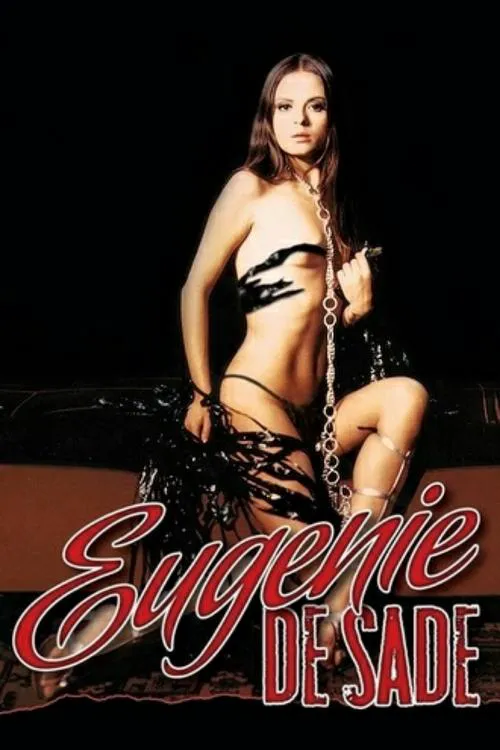Eugenie de Sade

Plot
Eugenie de Sade, a 1970 French New Wave film, is an intriguing and provocative drama loosely based on several themes by the Marquis de Sade. Directed by Jesús Franco, the film is a dark exploration of sex, power, and the blurring of moral boundaries. Set in the late 19th century, the film is a fictionalized account of a young woman's descent into a world of perversion and brutality. Eugenie, played by Marie Liljedahl, is a beautiful and introverted young girl who lives with her stepfather, a renowned author, known for his explicit and provocative writings on erotica. Eugenie's stepfather is a complex and troubled figure, whose obsession with the macabre and the grotesque fuels his creative pursuits. The relationship between Eugenie and her stepfather is initially presented as a harmonious and loving one, but as the film progresses, it becomes clear that his fixation on sex and power will eventually consume them both. One fateful day, Eugenie discovers one of her stepfather's books, which has a profound effect on her. The explicit content of the book awakens a desire in her, leading her to become increasingly drawn to her stepfather. This shift in Eugenie's emotional state does not go unnoticed by her stepfather, who is both intrigued and repelled by her growing interest. As he becomes aware of Eugenie's desires, he begins to manipulate her, gradually introducing her to the darker aspects of his world. The stepfather's intentions are multifaceted, driven both by a desire to fulfill his own perverted urges and to exploit Eugenie's innocence and vulnerability. He presents himself as a mentor and a guide, taking Eugenie under his wing and sharing with her the secrets of his twisted world. As Eugenie becomes more entranced by her stepfather's world, she begins to shed her innocence, gradually succumbing to the corrupting influence of his perversion. The film's exploration of Eugenie's psychological unraveling is a central theme, as she becomes increasingly seduced by the dark allure of her stepfather's world. This process is depicted as both seductive and repulsive, reflecting the complex and disturbing nature of the relationship that has developed between them. Eugenie's vulnerability and naivety make her a willing participant in her stepfather's twisted games, and she begins to see the world through his warped perspective. One of the key aspects of the film is its portrayal of the Marquis de Sade's themes and ideas. The Marquis de Sade was a notorious figure, known for his advocacy of absolute freedom and the rejection of societal norms and conventions. In the context of the film, Eugenie's stepfather represents a manifestation of the Marquis de Sade's more extreme ideas, where the pursuit of pleasure and the rejection of morality lead to a complete breakdown of boundaries and norms. The film's atmosphere is tense and foreboding, reflecting the increasingly dark and disturbing nature of the relationship between Eugenie and her stepfather. As Eugenie becomes more entrenched in her stepfather's world, the film's tone becomes progressively more sinister and unsettling, hinting at the brutal and violent events that will unfold. The cinematography is stark and minimalist, conveying the sense of a world that is decaying and corrupt. Ultimately, Eugenie de Sade is a dark and unsettling film that probes the depths of human depravity and corruption. It is a thought-provoking and disturbing exploration of the blurring of moral boundaries and the corrupting influence of power and desire.
Reviews
Recommendations




